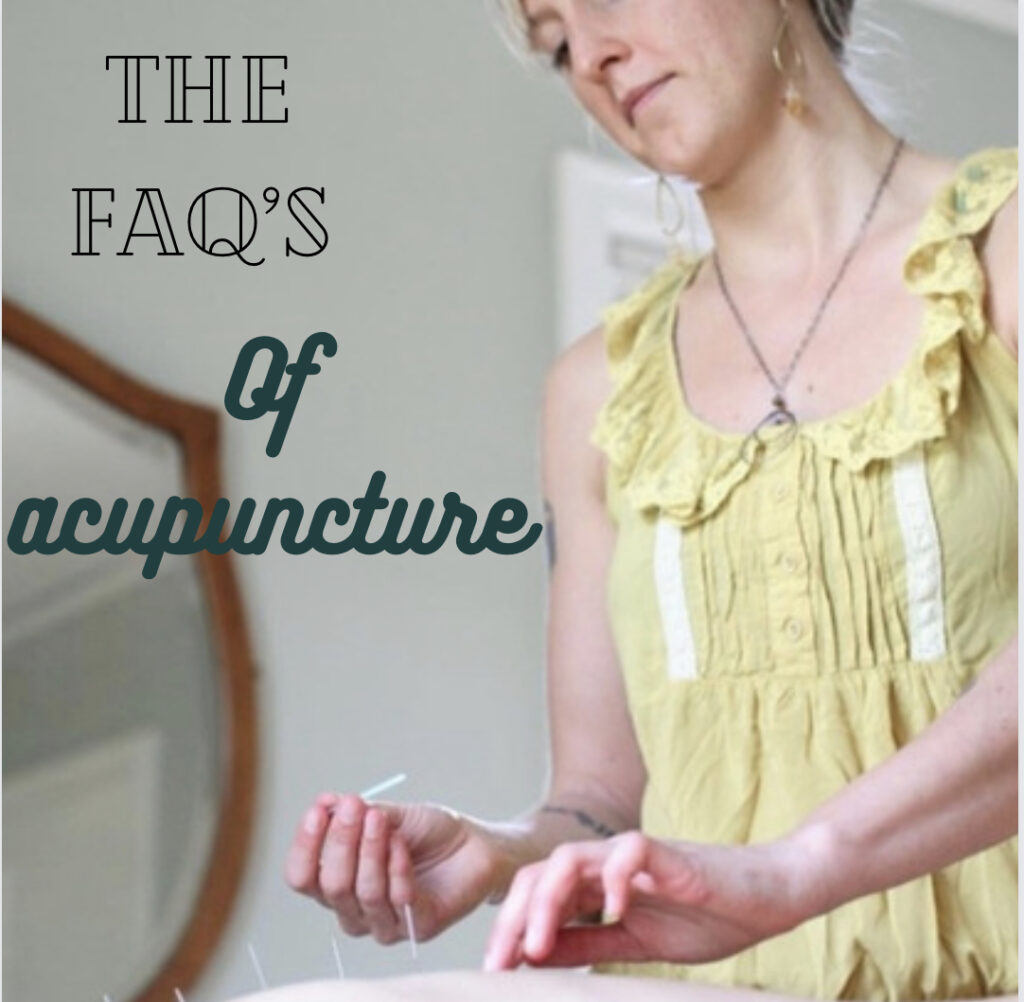Resources
The FAQ’s Of Acupuncture

Does acupuncture really work for pain?
Did you know that some of the substances released during acupuncture much stronger than morphine? Acupuncture releases natural painkillers through Inserting a needle gently into the epidermis. This sends a signal through the nervous system to the brain, where chemicals such as endorphins, norepinephrine, and enkephalin are released. Acupuncture has been around for 3-5,00 years and has evolved into what we know today as insertion of cat whisker thin, stainless steel needles. These tiny needles are inserted in chosen areas to promote a healing response, release endogenous chemicals, promote blood flow and relax the nervous system.
How many acupuncture sessions does it take to see results?
The acupuncturist typically inserts 4 to 15 needles and leaves them in place for 10 to 30 minutes while you rest on a cozy bed. A usual course of treatment includes 4 to 12 sessions over a three-month period. While some notice an effect immediately that can last for several days, others with more chronic conditions will notice a gradual improvement over time.
Does acupuncture hurt?
Not at all! Depending on the diameter and size of the needle inserted acupuncture can feel momentarily like a dull ache, the twitching of a muscle releasing or some feel nothing at all. If the experience does cause you any pain let the acupuncturist know and they can re-insert the needle differently. Most feel a deep relaxation that some refer to as, “ going to acu land”. This feeling has been said to last several hours after a treatment so it’s always a good idea to take your time after getting off of the treatment table before you drive.
How deep does an acupuncture needle go?
That depends on what part of the body and what effect the acupuncturist is going for. For muscle stimulation and release the needle can go in as deep as 1-2 inches. Most typically the depth depends on point (which there are 365 +). For example a point on the back of the neck may be 2–3 cm deep, but a point on the forehead may only be a few millimeters deep. Needles vary in thickness, thinner needles will be used for those who are more sensitive while thicker needles are used for more intense stimulation as needed.
What should I avoid before or after acupuncture?
Avoid caffeine and alcohol immediately before and after receiving acupuncture. This is because Acupuncture elicits an immune response that helps to increase blood flow to areas of the body that require healing. Also, alcohol and caffeine are diuretics that can inhibit the healing response incited by a treatment. You will also find you have a difficult time relaxing if you consume caffeine beforehand and may have a greater sensitivity to the needles.
Does it require training to become an acupuncturist?
Absolutely. Some may be surprised to find out that obtaining an acupuncture degree requires a bachelor degree and is a 4-6 year program that either leads to a masters in acupuncture or a doctorate commonly referred to as MAOM and DAOM.
What is better acupuncture or physical therapy?
The answer is, choose both! While acupuncture works more passively on the nervous system, muscle relaxation and hormone balance. Physical therapy works actively on all of these components. One does not work well without the other for most conditions. The body needs to move and the body needs to rest, both create balance in health.
Is acupuncture safe?
Without a doubt when administered by a licensed professional as listed above. Practitioners of acupuncture go through rigerous medical training and must pass a number or board exams given by the NCCAOM and meet specific state medical board requirements in order to practice this modality. Common side effects include soreness and minor bleeding or bruising where the needles were inserted. Single-use, disposable needles are now the practice standard, so the risk of infection is almost non-existant.
Does it work for other conditions other than pain?
Yes, the point is to balance the nervous system and create homeostasis. So that translates too balancing hormones and increasing blood flow to help with fertility, iui and IVF, it can regulate menses and help post menopause. Aside from womens health, it has been shown to help many male health conditions. It also is used for post stroke recovery, preventing and treating the common cold and flu and digestive problems of all sorts. Many people with autoimmune conditions use acupuncture to calm the overactive immune response and report feeling better for several weeks after a treatment.
Written by Kileen Swenson LAc MAOM practitioner of Acupuncture and Chinese Herbal Medicine at WellBalanced Center For Integrative Care